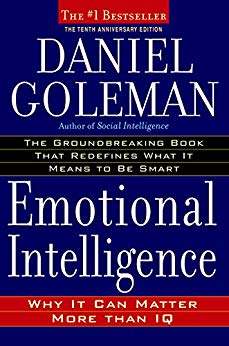

This article is an excerpt from the Shortform summary of "Emotional Intelligence" by Daniel Goleman. Shortform has the world's best summaries of books you should be reading.
Like this article? Sign up for a free trial here .
Criticism, or feedback, is one of the major workplace areas that we need emotional intelligence.
People need feedback to do their jobs better and keep their work on track. Like cogs in a clock, every part of a system needs to be running at its best to keep the whole system going; in a workplace, people are the cogs, and everyone needs feedback to improve their performance for the sake of the whole.
How do you give feedback and constructive criticism? To your boss, and to employees?
When people don’t get feedback, they’re in the dark: they don’t know how their boss or their peers feel about their work, they don’t know exactly what’s expected of them and whether they’re meeting those expectations, and if there are any issues with their performance, they’re left to get worse as time goes on.
Managers must be good at both giving feedback and receiving it. It makes a difference in how successful a workplace is. The better you are at giving feedback and receiving it yourself, the more satisfied and more productive your employees will be. Feedback should be used to motivate your employees to do better.
- One study of managers and white-collar workers found that inept criticism was the biggest cause of conflict at a job, ahead of distrust, personality clashes, and disagreements over pay or position.
When Giving Feedback Goes Wrong
If you want to give good feedback, here are things to avoid:
- Expressing criticism as personal attacks. Personal attacks can’t be acted on, they can only serve to upset the person suffering them. As we discussed in the previous section, personal attacks lead to defensiveness, stonewalling, and emotional hijacking.
- Making negative blanket statements. “You messed up” is not feedback by itself. It does not communicate how someone messed up, why it’s important not to mess up this way, and what the person can do differently to not mess up next time. Feedback is about giving your employees actionable things to work on, not about demeaning them or punishing them for doing something wrong.
- Using anger. Giving criticism from a place of anger starts a vicious cycle wherein the manager angrily attacks the employee, the employee gets defensive or stonewalls, and then the manager gets annoyed with the employee for responding that way, which leads to more criticism and anger, which leads to more defensiveness and stonewalling, on and on until the employee quits or gets fired.
Mishandling feedback can demoralize employees, causing them to refuse to cooperate or avoid managers altogether.
———End of Preview———

Like what you just read? Read the rest of the world's best summary of Daniel Coleman's "Emotional Intelligence: Why It Can Matter More than IQ" at Shortform . Learn the book's critical concepts in 20 minutes or less .
Here's what you'll find in our full Emotional Intelligence summary :
- What are emotions? Why do we have them?
- What is emotional intelligence? Why is it important?
- How do you manage your own emotions? Anger, anxiety, and sadness?
- How can you approach your relationships with more emotional intelligence?
- How can you teach your children emotional intelligence?
- How can emotional intelligence boost your career?






